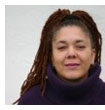|
Intermix.org.uk is a website for the benefit
of mixed-race families, individuals and anyone who feels they have a multiracial
identity and want to join us. Our mission is to offer a view of the mixed-race experience, highlighting icons, film, books, poetry, parenting techniques, celebrities, real lives and much more. Our online forums are a great place to meet others, ask questions, voice your opinions and keep in touch. Sign up for our monthly newsletter and delve into our pages. Want to join in? Become an Intermix member to take part: |
Mixedness & Mixing E-Conference
Day 1 Equality: Panel Comments

Dr Rob Berkley is Deputy Director of the Runnymede Trust, an independent policy-research organisation focusing on 'race' and social policy. His doctoral studies focused on exclusions from school and his continuing research interests lie in public policy, multiple identities, educational disadvantage, young people, 'race', ethnicity and social justice. Recent publications include ‘Identity, Ethnic Diversity and Community Cohesion’ (Sage: London 2007), ‘Britain; challenges for race equality’ (2006) and ‘Connecting British Hindus’ (2006).
On reading the papers collected here I was led to ask, 'How did we get back here?' After all, 'race' simply does not exist except as a social construct. I know that this might seem counter-intuitive to some, but the rejection of categorization by biological/phenotypical 'races', in favour of the recognition that 'there is only one race, the human race' has been a touchstone of modern understandings of human rights, equality and social justice. It seems as if the colloquial use of the term 'mixed-race' has made 'race' real again and dealing with this reification of 'race' (which I am now reverting to putting into inverted commas) is the subject of many of these papers concerned with equality.
Identities are dynamic, mutable and shifting, and for this reason, it is fascinating to see the debate about the defining mixedness and its place in our 'race relations' idiom.
Haritaworn and Adonis start from the point of view of the external gaze. For them the 'what are you?' question looms large. In response Bellos states, that if there has to be a category then 'I am Black', for her, Black consciousness calls for a recognition of the racisms that people face because of their African heritage.
Ahmed and Malik reject the discourse entirely, arguing that the rules of the game are flawed and can only lead to 'competitive grievances'. For them mixedness is a means of confounding 'race'. Similarly, Ali, in rejecting racial categorisation, highlights quite how meaningless the 'what are you?' question is. Mann on the other hand argues strongly that the answer should be 'I am mixed-race'.
Far from unanimous in their understandings, the authors highlight one of the key challenges in discussing mixedness; if 'race' doesn't exist, how can mixedness have any meaning? The answer may be found in thinking about the first question 'what are you?' Who is asking the question? What gives them the right to do so? How resilient is the questioned in being able to resist the categorization? As long as it remains a valid question, then we are bound into a 'race' discourse that grounds identity on the basis of biological and phenotypical markers, i.e. a racist discourse. Racism, after all, definitely exists.
The other papers in this collection eschew this more existential discussion by examining what data collection has told us about people who define themselves as mixed.
Song usefully questions the definitions made and looks at what is behind the identifications people make. Owen, Tikly and Johnson look at what the statistics tell us about the inequalities faced by people who define themselves as mixed. The responses of policymakers to these inequalities are examined - none more stark than the decisions made by social workers in placing children for adoption, as discussed by de Sousa and Simmons.
Given the lack of consensus on issues of identity, it is unsurprising that policy is not yet subtle and dynamic enough to cope; the very reason that we were so keen to encourage this discussion. The questions remain
* given the difficulties of using 'race' as a marker, is it sensible to consider a mixed race culture or ethnicity?
* what are we expecting of policymakers in responding to the needs of such a diverse group?
* are other intersections of identity such as gender and class more important than racial categorizations in meeting the needs of those racialised as mixed?

Dr Chamion Caballero is a research fellow at London South Bank University and is currently working with Professor Rosalind Edwards on a project funded by the Joseph Rowntree Foundation looking at the experiences of parents from different racial, ethnic and faith backgrounds. She has a longstanding research interest in issues around mixed identities, particularly around the theorisation of mixedness, and was one of the authors of the DfES report 'Understanding the Educational Needs of Mixed Heritage Children', published in 2004.
Appropriately for a conference hosted by the CRE, the first of the three conference debates kicks off with the focus on equality.
A great deal of research into mixing and mixedness has had a tendency to focus on equality largely in relation to identity politics (e.g. the 'right' to identity as mixed), so the wider focus on equality in so many of the papers brings a fresh perspective to the debate. Contributors engage with the topic in a number of ways. Some raise the question of equality - or rather inequality - in specific terms, highlighting institutional practices that directly, and often negatively, affect those from mixed backgrounds, whether in the collection of official statistics (Charlie Owen), education (Leon Tikly), or within the health and social care system (Mark Johnson, Ayo Bakare). Others highlight inequality through discriminatory treatment - either through sharing their personal experience (Eve Ahmed, Gill Lawrence) or through examining prevailing assumptions and attitudes (Isabel Adonis, Leon Mann, Graham Suppiah).
Many contributors, including some of those already mentioned, not only contemplate how those forms of discrimination and inequality that people from mixed backgrounds experience can best be tackled, but also ask wider questions about equality in relation to mixedness. A number of papers raise concerns that an undiscerning and generalised focus on those of mixed 'race' may not only diminish the diversity of experience within the mixed population, but obscure the effect of other social differences - class, gender, sexuality, etc - on patterns of inequality and discrimination (Miri Song, Suki Ali, Jin Haritaworn, Sarita Malik). Furthermore, some interrogate the need to focus on the racial aspect of mixedness at all, questioning both the desire and usefulness of engaging with this particular identity (Nathalie van Meurs, Linda Bellos).
From a research perspective, the papers here raise critical questions and implications for those working on issues of mixedness. As in all areas, research has a key place to play in ensuring that equality is taking place. Indeed, academic research that emerged in the early to mid-twentieth century played a critical part in supporting and developing contemporary ideas of people from mixed backgrounds as 'marginal', 'confused' and 'between two worlds'. As such, several contributors rightly note the danger of making policy recommendations to address inequality without relevant and sophisticated empirical study.
The challenge for researchers is how to conduct research which captures the multiplicity of experiences whilst saying something meaningful, whilst the challenge for policy makers is to translate such research into appropriate and workable strategies, ones which have a positive effect on people's lives, rather than stigmatising and problematising them and their families.
Yet, as the differing papers in this section show, research and policy in the UK has only just begun to address key equality-related questions around mixedness, such as: should we talk of a mixed population, group or community and, if so, what do we mean when we say they are mixed? Does inequality take specific forms for those who are from mixed backgrounds and, if so, is this the same across all mixed groups? Will including those who describe themselves as mixed in debates on race equality improve or diminish progress in those debates?
Whilst the papers submitted here do not provide any quick answers, they provoke the beginnings of the big debate needed in order to move our understandings of mixedness in Britain forwards.

Sharron Hall is from Moss Side, Manchester. Her mother is English and her father from Barbados. Sharron is the founder and editor of Intermix.org.uk, a website offering news and views of the mixed-race experience from all over the world, for which she received a Family Learning Millennium Award in 1999.
The mixed experience is not just a black and white one, it is about people from lots of different backgrounds. It's not just about mixed-race individuals, it's about mothers and fathers, sisters, brothers, friends, work colleagues, pupils and many other members of society. There are some racially mixed people who have never been adversely affected by their racial backgrounds, some, who through lack of education are ignorant to the effect it has on their life chances and there are many for whom it has a profound affect on their well-being.
It is very clear that many mixed-race individuals are not treated the same as other members of society. Rarely allowed to define our own racial identity, we are usually assigned one according to how we look. For those of us who have embraced the term mixed-race and accepted that we cannot put one race above another, we are now told that this term is unacceptable and we must accept the terms society assigns us, such as: dual heritage, multiple heritage, Black, White, Asian.
For those individuals with a black parent, the racism they face is particularly blatant. The racial background of their 'other' parent is often completely ignored and they are assigned a black identity whether they have had any contact with that identity or not. This highlights how deep racism against the black population is and though we don't admit to having the 'one drop' rule in the UK, it is openly practiced.
Racial mixing, the very thing that could negate the race issue altogether cannot be condoned in a racist society. The UK sees itself as an antiracist society yet whilst racial mixing is tolerated by some, it is never portrayed as a natural occurrence. Instead families are subjected to endless research and countless documentaries that focus on the negative and ensure that the mixed-race experience remains an issue and not normal.
Many deny the existence of a mixed identity but if that is the case why is there so much research undertaken, why is it one of the most popular subjects for students to investigate and why do mixed-race people feel their experiences are 'swept under the carpet'?
Most of the papers in this section focus on ideas of identity. There are a wide range of ideas about mixed identity and it is good to see the subject from so many different views. Linda Bellos abhors the term mixed-race and would rather we acknowledge our African ancestry. Graham Suppiah draws attention to the misrepresentation of mixed sports personalities as black, whilst Isabel Adonis makes some excellent points about how we should feel about identity. Each paper has something to contribute to the debate and I would urge you to add your comments wherever possible. I shall be adding mine.
